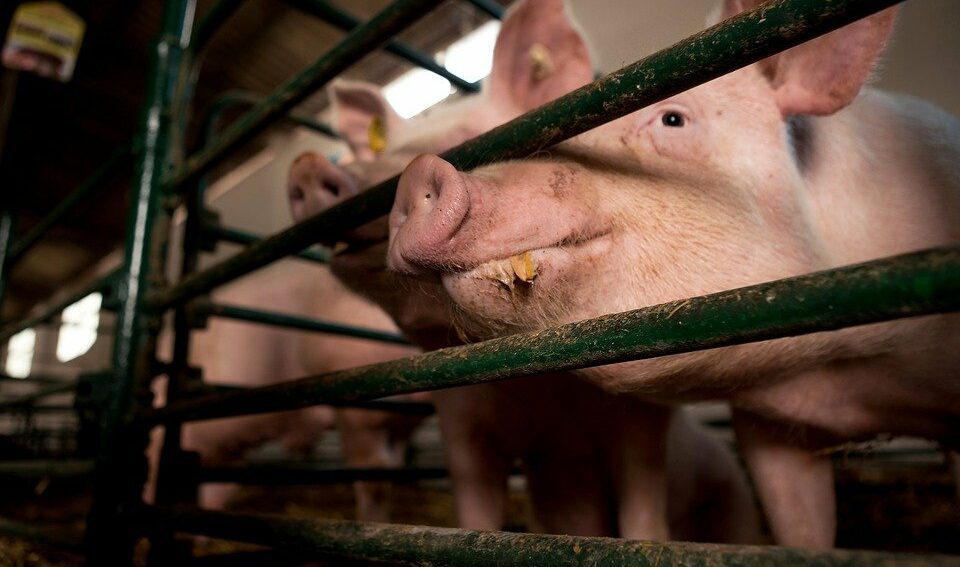Send to a friend
The details you provide on this page will not be used to send unsolicited email, and will not be sold to a 3rd party. See privacy policy.
In brief: In 2020, African swine fever (ASF) swept through the Philippines, decimating pig stocks and creating a food security crisis. In 2021, A SciDev.Net article revealed that culling figures were much higher than those reported by government. Senator Panfilo Lacson called for an inquiry into the ASF crisis, citing the SciDev.Net article – evidence that members of government use SciDev.Net as an information source. The inquiry led to new livestock importation guidelines.
Why it matters: Pork is second only to rice as a source of food energy for Filipino working adults. Poor households depend on pigs as a source of food and income.
The big picture: The ASF outbreak inflated the price of pork by 60 per cent, which had a ripple effect on food prices and led to a food security crisis across the country.
By the numbers: The ASF outbreak affected an estimated 4.7 million pigs – more than two thirds of the country’s pig stocks. Business losses were estimated at US$1.2 billion.
Background
In the Philippines, pork is a critical part of people’s diets and is second only to rice as a source of food energy for working adults. According to the director general of the World Organisation for Animal Health, Monique Eloit, poor households depend on pigs as a source of income. They act as a safety net in times of crisis, as they can be used as collateral for credit, sold for income or consumed directly as food.
But in 2020, Philippine farmers faced a crisis. African swine fever (ASF) swept through the country, decimating pig stocks. The Department of Agriculture called for hogs to be culled and officially cited culling figures of 431,000 during the infestation. For a country already reeling from the economic impact of the COVID-19 pandemic, the cull was devastating to smallholder farmers and backyard raisers.
At the time, Eloit said: “Many such farmers have lost or will lose their businesses because of ASF.” But the devastation turned out to be much worse than anticipated. Private industry hog raisers believed the government had vastly underestimated the real number of animals culled. They believed the figure to be around 4.7 million or 36 per cent of the country’s pig stocks and the scale of the impact much higher.
What action did SciDev.Net take?
In December 2020, an anonymous source contacted SciDev.Net. They described how the department of agriculture had underestimated the devastation caused by ASF and how the reduction in pork production had led to price rises for many food items.
The figures were alarming. In January 2021, pork was priced at PHP400 (US$8.30) per kilogramme, a 60 per cent increase from its PHP250 (US$5.20) per kg price six months previously. This is close to the minimum daily wage in Metro Manila of PHP537 (US$11.17). The dramatic increase triggered a ripple effect, increasing the prices of other meats and food stuffs, especially chicken, as alternative sources of protein.
In January 2021, SciDev.Net’s Asia and Pacific desk commissioned a story to dig deeper into the facts behind the ASF outbreak and its impact on people and the economy. Journalist Melanie Sison interviewed Eloit about possible solutions to the ASF outbreak. Eloit confirmed it would be “impossible to control the disease in the short term without a vaccine,” and because of the difficulty in applying strict biosecurity measures, government action would be needed.
Sison wrote a story, which SciDev.Net published in February 2021, entitled: African swine fever decimates Philippine pig stocks.
What was the impact of SciDev.Net’s action?
In March 2021, Senator Panfilo Lacson called for an inquiry into the food security crisis brought about by the ASF outbreak. He called for policies to prevent illegal practices around poultry and pork imports, and he cited the 2021 SciDev.Net article in the introduction of his written argument for an investigation, as evidenced in this document.
This citation demonstrates that the office of Lacson, who announced his intention to run for president in the May 2022 polls, used SciDev.Net articles as a source of information for reviewing policies. Coupled with previous citations that SciDev.Net received regarding Senators Richard Gordon and Franklin Drilon, and the tuning in of Senator Juan Miguel Zubiri to our Asia Pacific Special online debate on Formal Education Under the New Normal in September 2020, is further evidence that members of the Philippine Senate are monitoring SciDev.Net as a source of information.
The ASF inquiry went ahead. Subsequently, guidelines were created around rules on livestock importation. This stabilised pork prices and led to the prosecution of several agriculture and other government employees on corruption allegations.


